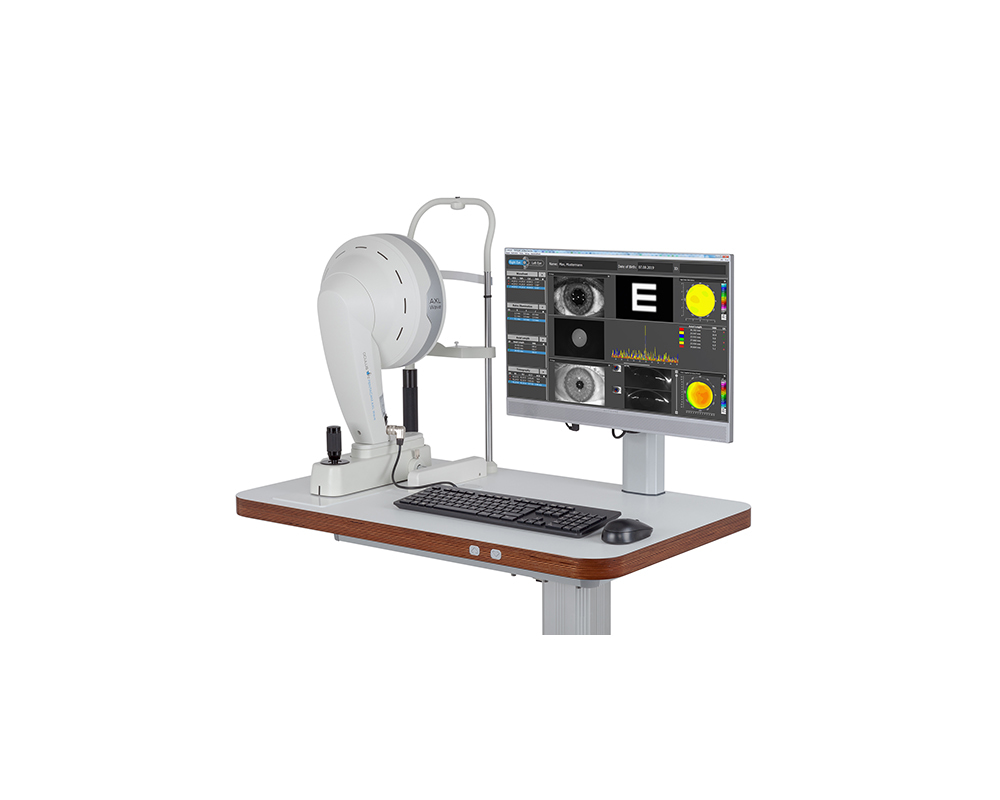
Comprehensive Eye Care
in San Francisco
At San Francisco Eye Institute, it is our mission to ensure that our patients enjoy healthy eyes and clear vision for life. A comprehensive eye exam begins with listening to your concerns. We then provide a thorough ophthalmic evaluation, from your eyelids and cornea at the front of your eye to your retina and optic nerve towards the back.
Book an AppointmentHow Often Should You Have Your Eyes Examined?
It is very important for everyone to undergo regular eye examinations, even if they aren’t bothered by poor vision. During a thorough eye exam, your doctor may identify refractive errors or eye problems. Many eye conditions are progressive and may not show symptoms until the eye has already suffered damage, and early intervention is key to maintaining eye health and preventing vision loss.
During a routine eye examination, our doctors screen patients for signs of eye conditions including:
- Corneal Disease
- Cataracts
- Dry Eyes
- Glaucoma
- Diabetic Retinopathy
- Macular Degeneration
The American Academy of Ophthalmology recommends that adults undergo routine eye exams at the following intervals:1
- Under 40: Every 5 – 10 years
- 40 – 54: Every 2 – 4 years
- 55 – 64: Every 1 – 3 years
- 65 or older: Every 1 – 2 years
Our doctors may recommend that individuals with certain health concerns, eye conditions, or risk factors have an eye exam more frequently.
What to Expect During Your Eye Examination
During a comprehensive eye examination, your doctor will conduct a number of tests to evaluate the health and function of your eyes, including:
- A visual acuity test
- Refraction for glasses or contact lenses prescription as needed
- Tonometry to measure the pressure within the eye
- Visual field tests
- Slit-lamp biomicroscopy to examine your eyes using a microscope and bright light
- Binocular indirect ophthalmoscopy to examine your retinas with a wide, stereoscopic view after dilating your pupils
Eye Care Technology and Testing
We have a complete set of instruments to perform advanced testing to further investigate the function and anatomy of your eye, including:
- Pentacam® AXL Wave: This remarkable tool allows us to conduct comprehensive corneal scanning for eye diseases and abnormalities, including keratoconus. It also makes it possible for us to optimize results for cataract and refractive surgery as well as for contact lens fittings.
- External and Retinal Photography: Makes it possible for us to monitor the progression of eye diseases and conditions.
- Advanced Biometry: Helps us optimize refractive correction and cataract surgery.
Optical Coherence Tomography (OCT): Helps us conduct non-invasive corneal, retinal, and optic nerve imaging. - Humphrey Visual Field Testing: Allows us to detect any visual field defects and includes a Glaucoma Progression Analysis (GPA) report.

Additional Services from San Francisco Eye Institute
In addition to providing the highest quality of comprehensive eye care, the experts at San Francisco Eye Institute also specialize in:
Schedule Your Eye Exam at San Francisco Eye Institute
Whether you are in need of a routine eye exam or are experiencing eye or vision issues you feel should be addressed by an ophthalmologist, the experts at San Francisco Eye Institute are here to help. To schedule a consultation with a member of our team, please contact us today.
The doctors at San Francisco Eye Institute have either authored or reviewed and approved this content.
Ensuring the highest level of vision care and individual attention possible.
Whether you just need a general eye exam, or if you are interested in reducing or eliminating your need for glasses or contacts, our team is here to help! Contact us to book an appointment today!
